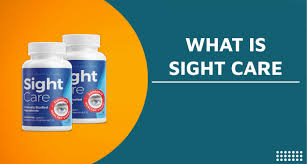Vision is one of our most valued senses, often taken Sight Care reviews for granted until problems arise. Proper sight care is essential to maintaining good vision throughout life, and understanding how to protect and preserve your eyesight can make a significant difference in your overall quality of life. This article delves into the key aspects of sight care, including preventative measures, common issues, and professional guidance.
1. The Basics of Sight Care
Sight care encompasses a range of practices aimed at maintaining eye health and preventing vision loss. It includes regular eye exams, proper nutrition, and healthy lifestyle choices. Early detection of potential problems is crucial, as many eye conditions develop slowly and may not present noticeable symptoms until they are advanced.
Regular Eye Exams: One of the cornerstones of effective sight care is scheduling regular eye exams with an optometrist or ophthalmologist. These exams can detect issues such as glaucoma, macular degeneration, and diabetic retinopathy before they cause significant damage. For most people, an eye exam every one to two years is recommended, but those with existing conditions or higher risk factors may need more frequent visits.
Nutrition: A balanced diet rich in vitamins and minerals supports eye health. Nutrients such as vitamin A, C, E, zinc, and omega-3 fatty acids play vital roles in maintaining good vision. Foods like leafy greens, carrots, fish, and nuts are particularly beneficial. Staying hydrated is also important, as dry eyes can lead to discomfort and vision problems.
Lifestyle Choices: Healthy lifestyle choices contribute significantly to eye health. Protecting your eyes from UV radiation by wearing sunglasses, avoiding smoking, and managing chronic conditions like diabetes can help prevent vision loss. Additionally, maintaining a healthy weight and engaging in regular physical activity can reduce the risk of developing eye diseases.
2. Common Eye Issues and Preventative Measures
Several common eye conditions can affect vision, and understanding these can help in taking preventative steps:
Myopia (Nearsightedness): This condition causes distant objects to appear blurry while close objects remain clear. It often develops in childhood and can be managed with corrective lenses or refractive surgery.
Hyperopia (Farsightedness): The opposite of myopia, hyperopia causes difficulty focusing on close objects. It can also be corrected with glasses, contact lenses, or surgery.
Presbyopia: This age-related condition affects the ability to see close objects clearly, usually becoming noticeable in the mid-40s. Reading glasses or bifocals can help manage symptoms.
Glaucoma: Known as the “silent thief of sight,” glaucoma often progresses without noticeable symptoms until significant vision loss occurs. Regular eye exams are crucial for early detection and treatment, which can help preserve vision.
Cataracts: Cataracts cause the lens of the eye to become cloudy, leading to blurred vision. They are common in older adults and can be effectively treated with surgery.
Age-Related Macular Degeneration (AMD): AMD affects the central vision and can significantly impact daily activities. While there is no cure, certain treatments and lifestyle changes can help slow its progression.
3. Professional Guidance and Treatment
Seeing an eye care professional regularly is essential for managing and treating eye conditions. Optometrists focus on vision correction and eye health, while ophthalmologists are medical doctors who can diagnose and treat more complex eye conditions, including performing surgeries. If you experience any sudden changes in vision, pain, or other symptoms, seek professional help promptly.
Advancements in eye care technology and treatments continue to improve outcomes for various conditions. From laser treatments to innovative drugs, staying informed about the latest developments can help in making educated decisions about eye health.
Conclusion
Sight care is an integral part of maintaining overall health and well-being. By incorporating regular eye exams, a nutritious diet, and healthy lifestyle practices, you can safeguard your vision and enjoy a better quality of life. Remember, proactive care and early intervention are key to preserving your eyesight for years to come.

